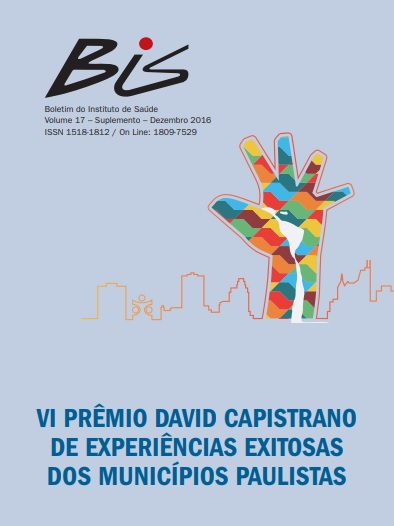Abstract
Scholar environment is very important to develop, in teaching process, health action. Therefore, NASF Continental and UBS Paulista, Brazilian basic care organizations, with partners support, developed a Health Fair at the State School “Roberta Maria Lopes Chaves”, aiming to expand health concept, mobilizing to self-care and autonomy. A circuit was developed in tem theme rooms: oral health; personal hygiene; responsible guard; sensorial circuit; graphite; bullying; health feeding; garbage; virtual water; and medication. 682 students, from 1st to 8th grade, took part in this activity. The aim was reached, considering that the main proposal was to aggregate knowledge about health, valuing children participation in the construction of knowledge, which was stated during activities with questions and interaction from these children. The partnership with the scholar organization made it easier for the strategy to succeed, motivating the actor involved, both children and professional participants.
References
Brasília-DF. 2011.
2. Cadernos de Atenção Básica - Saúde da Criança: Crescimento e Desenvolvimento. Ministério da Saúde. Brasília - DF. 2012.
3. OMS/WHO. The World Health Organization Quality of Life Assessment (WHOQOL): position paper from the World Health Organization.
Measuring Quality of Life. 1997.
4. VYGOTSKY, L. S. A formação social da mente. Martins Fontes: São Paulo, 1984.

This work is licensed under a Creative Commons Attribution 4.0 International License.
Copyright (c) 2016 Cíntia de Oliveira Barboza, Denise Rezende Nascimento , Estela Vitor Burdin , Marcelo Cordeiro Barreto de Oliveira, Patricia Mara dos Santos, Regina Luriko Shimizu
